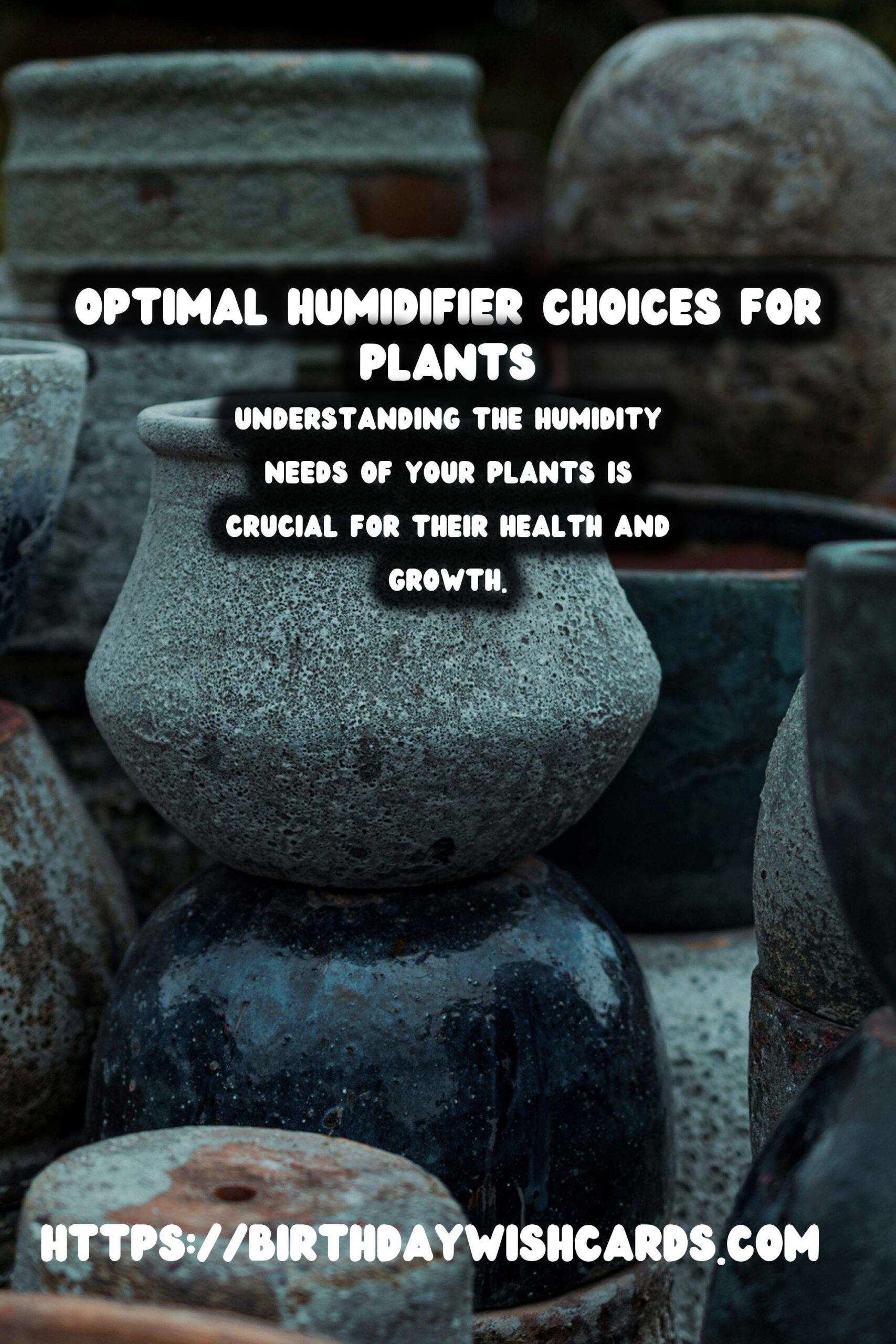
Indoor plants have become an integral part of home decor and wellness routines, offering aesthetic appeal and improved air quality. However, one aspect of plant care that is often overlooked is humidity. Understanding the humidity needs of your plants is crucial for their health and growth.
What is Plant Humidity?
Humidity refers to the concentration of water vapor present in the air. For indoor plants, the right humidity level can significantly impact their ability to photosynthesize, absorb nutrients, and fend off pests and diseases. Most houseplants are native to tropical regions where humidity levels are naturally higher, meaning they may struggle in the typically drier air found in homes.
Why is Humidity Important for Plants?
Humidity affects a plant’s transpiration process, which is the movement of water through a plant and its evaporation from aerial parts like leaves. High humidity environments reduce the rate of transpiration, allowing the plant to retain more moisture and nutrients. This, in turn, supports healthy growth and vitality.
Symptoms of Low Humidity
Plants exposed to low humidity levels may exhibit several symptoms, including browning leaf tips, wilting, and slowed growth. These signs indicate that the plant is losing more moisture through transpiration than it is absorbing from the soil, leading to stress and potential damage.
Choosing the Right Humidifier for Your Plants
Investing in a humidifier can be a game-changer for indoor gardening. Here are the main types of humidifiers to consider:
Evaporative Humidifiers
These devices use a fan to blow air through a wet wick or filter, adding moisture to the air. They are energy-efficient and self-regulating, as they automatically adjust the humidity level.
Ultrasonic Humidifiers
Using high-frequency vibrations, these humidifiers create a fine mist that is emitted into the air. They are quiet, efficient, and ideal for maintaining a consistent humidity level.
Impeller Humidifiers
These work by using a rotating disk to throw water at a diffuser, which breaks the water into fine droplets. They are typically more affordable and suitable for smaller spaces.
Tips for Using Humidifiers Effectively
To maximize the benefits of using a humidifier for plant care, consider the following tips:
- Place the humidifier near your plants, but not too close to avoid over-saturation.
- Regularly clean the humidifier to prevent mold and bacteria buildup.
- Use distilled or filtered water to minimize mineral deposits on your plants.
- Monitor the humidity level with a hygrometer to ensure it stays within the optimal range for your plants.
Alternatives to Humidifiers
If investing in a humidifier is not feasible, there are other ways to increase humidity for your plants:
Grouping Plants Together
Plants naturally release moisture through transpiration. Grouping them together can create a microclimate of higher humidity.
Misting
Regularly misting your plants can temporarily boost humidity levels. However, this method requires consistency and may not be suitable for all plant types.
Using Pebble Trays
Place a tray filled with water and pebbles under your plants. As the water evaporates, it increases the humidity around the plants.
Conclusion
Understanding and managing humidity is a key component of successful indoor gardening. By choosing the right humidifier and employing additional humidity-boosting strategies, you can create an environment where your plants thrive. Not only will this enhance their growth, but it will also contribute to a healthier and more vibrant indoor garden.
Understanding the humidity needs of your plants is crucial for their health and growth. Humidity affects a plant’s transpiration process, which is the movement of water through a plant and its evaporation from aerial parts like leaves. Investing in a humidifier can be a game-changer for indoor gardening. To maximize the benefits of using a humidifier for plant care, consider placing the humidifier near your plants and regularly cleaning it. Understanding and managing humidity is a key component of successful indoor gardening. 
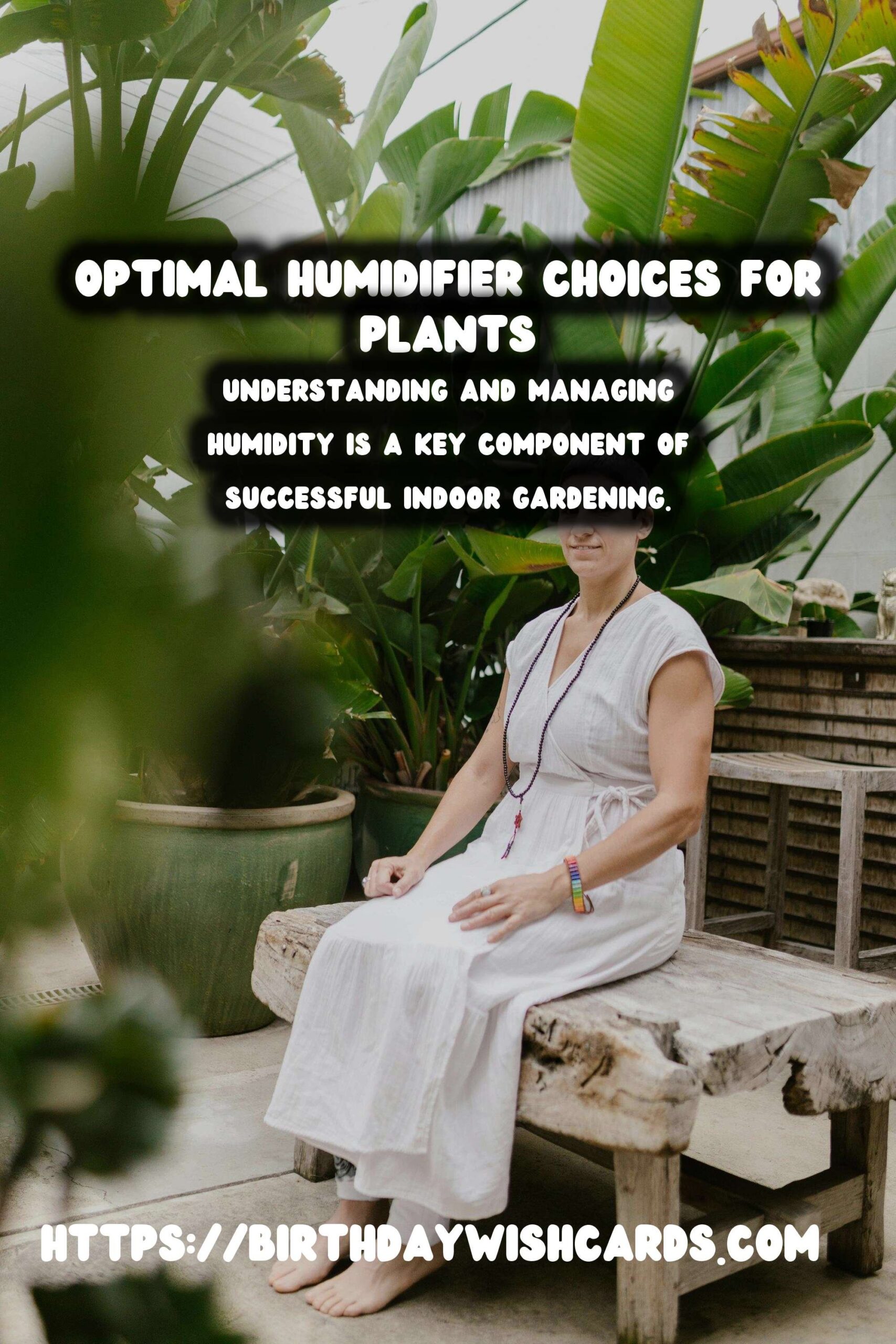
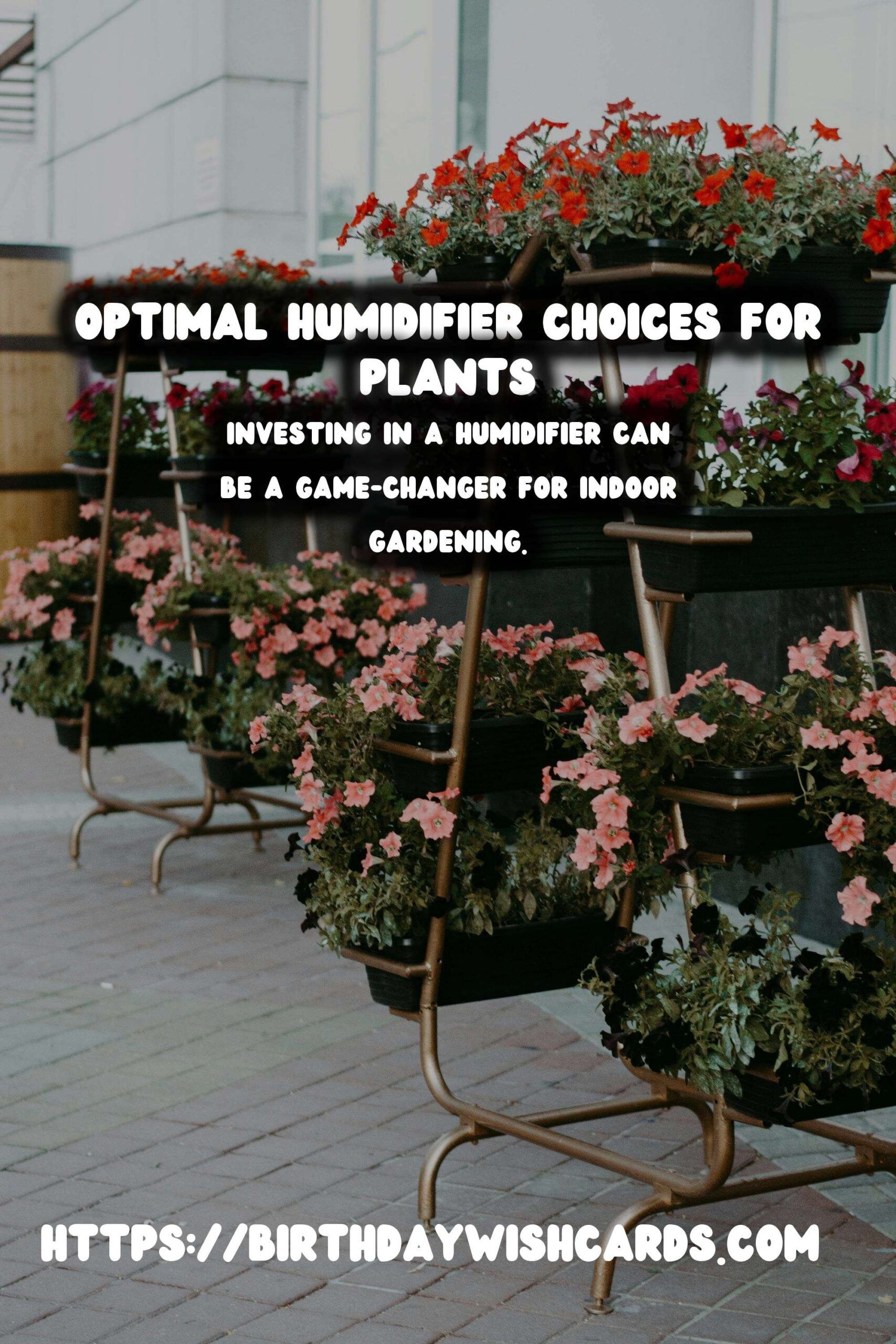
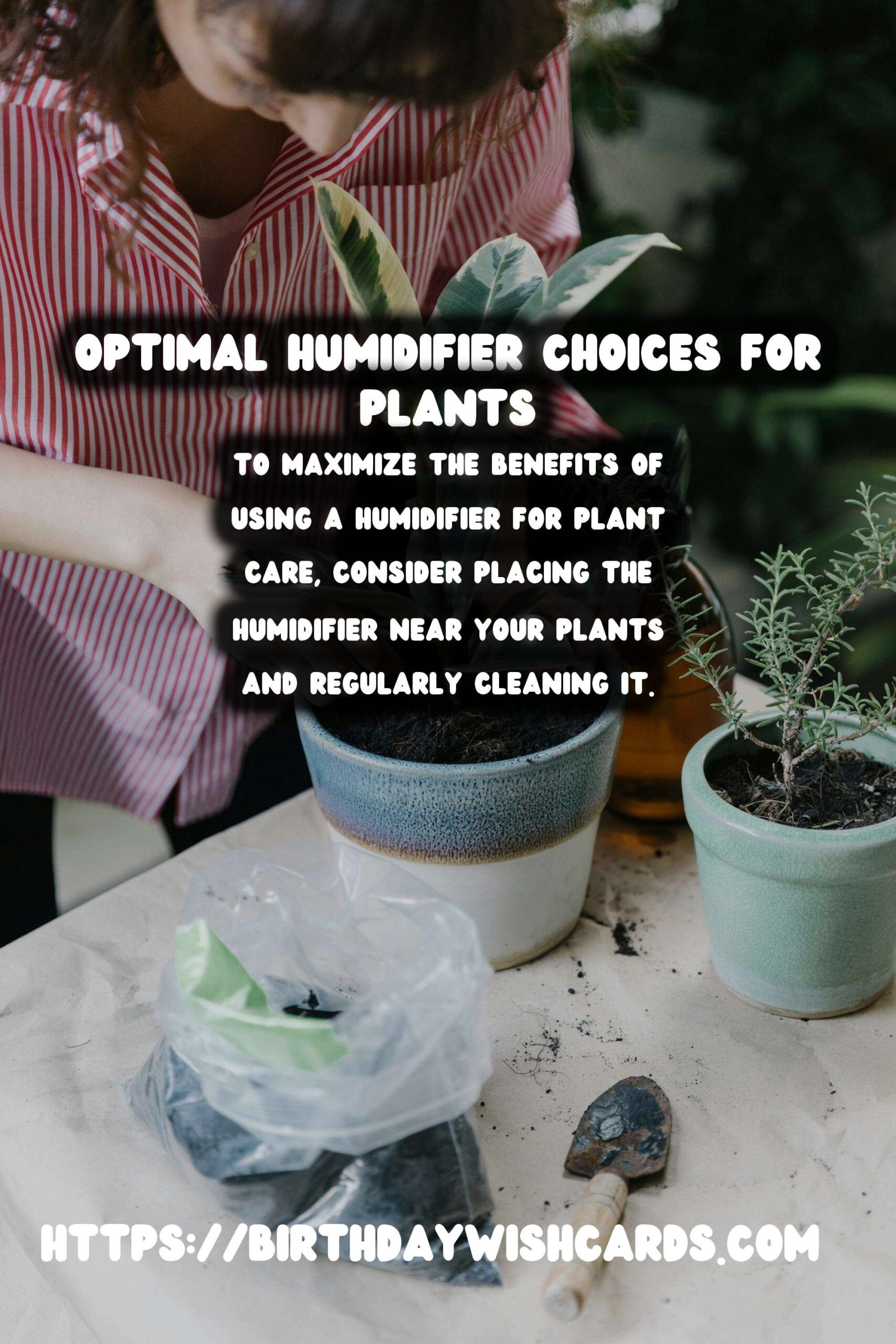
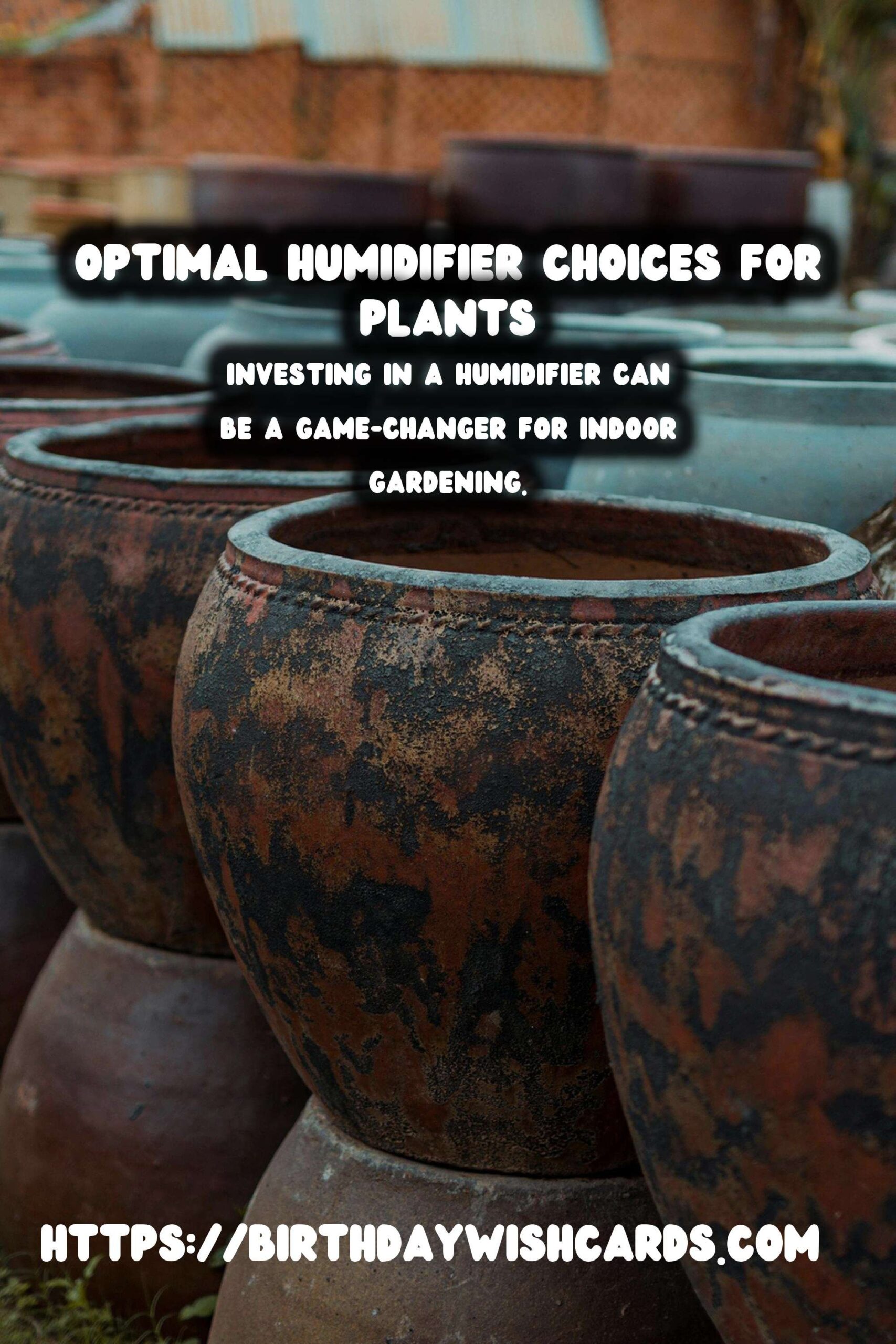
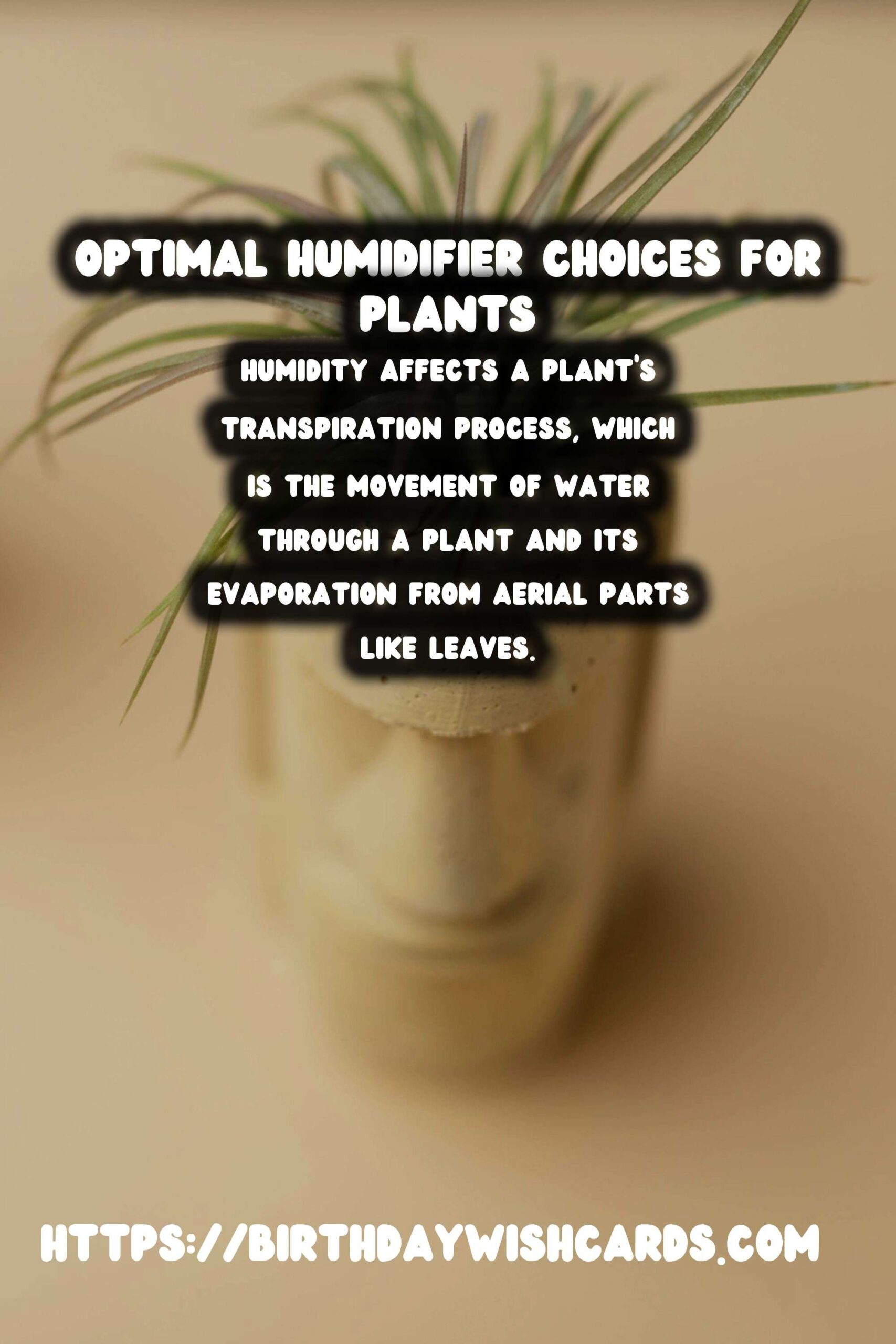
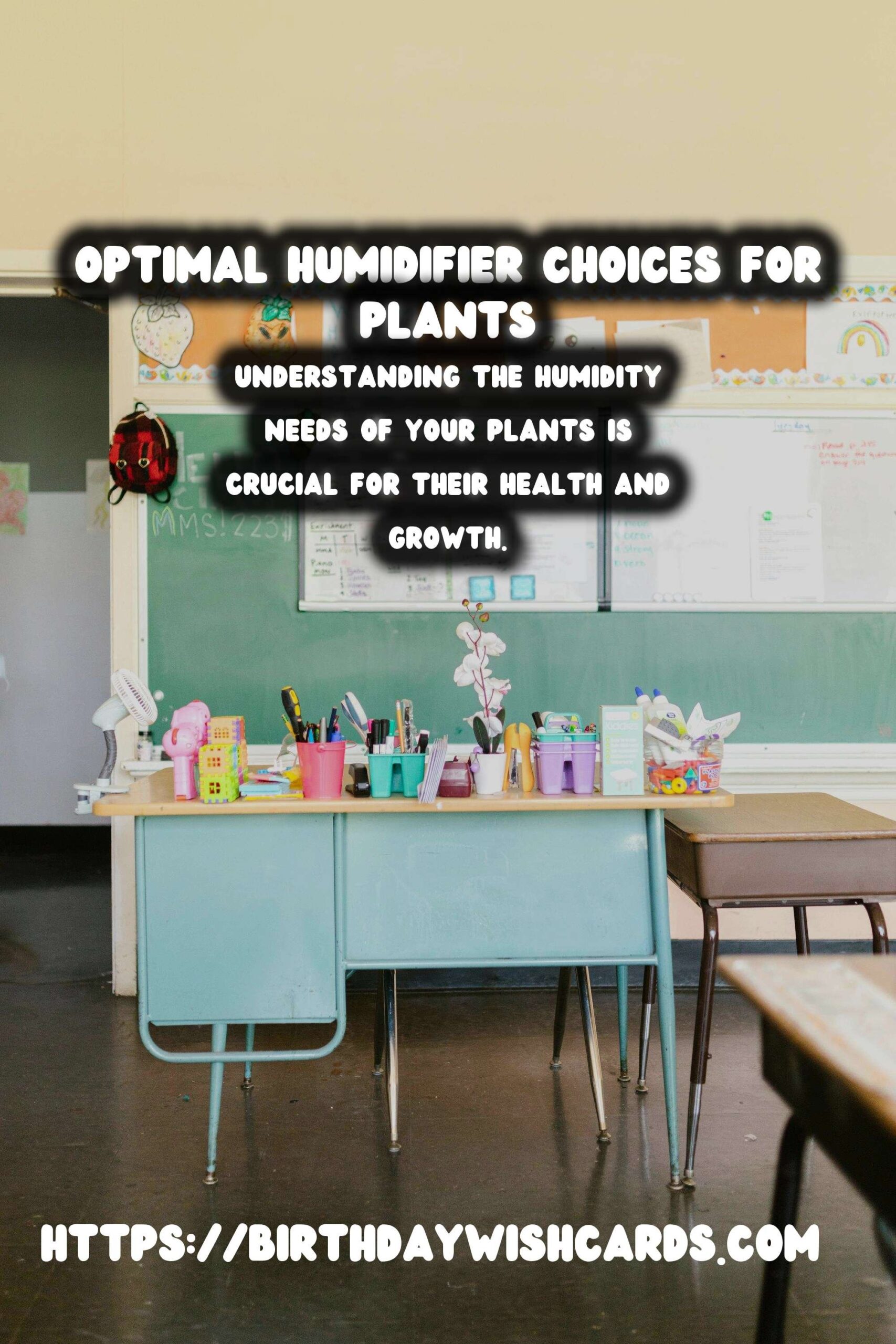
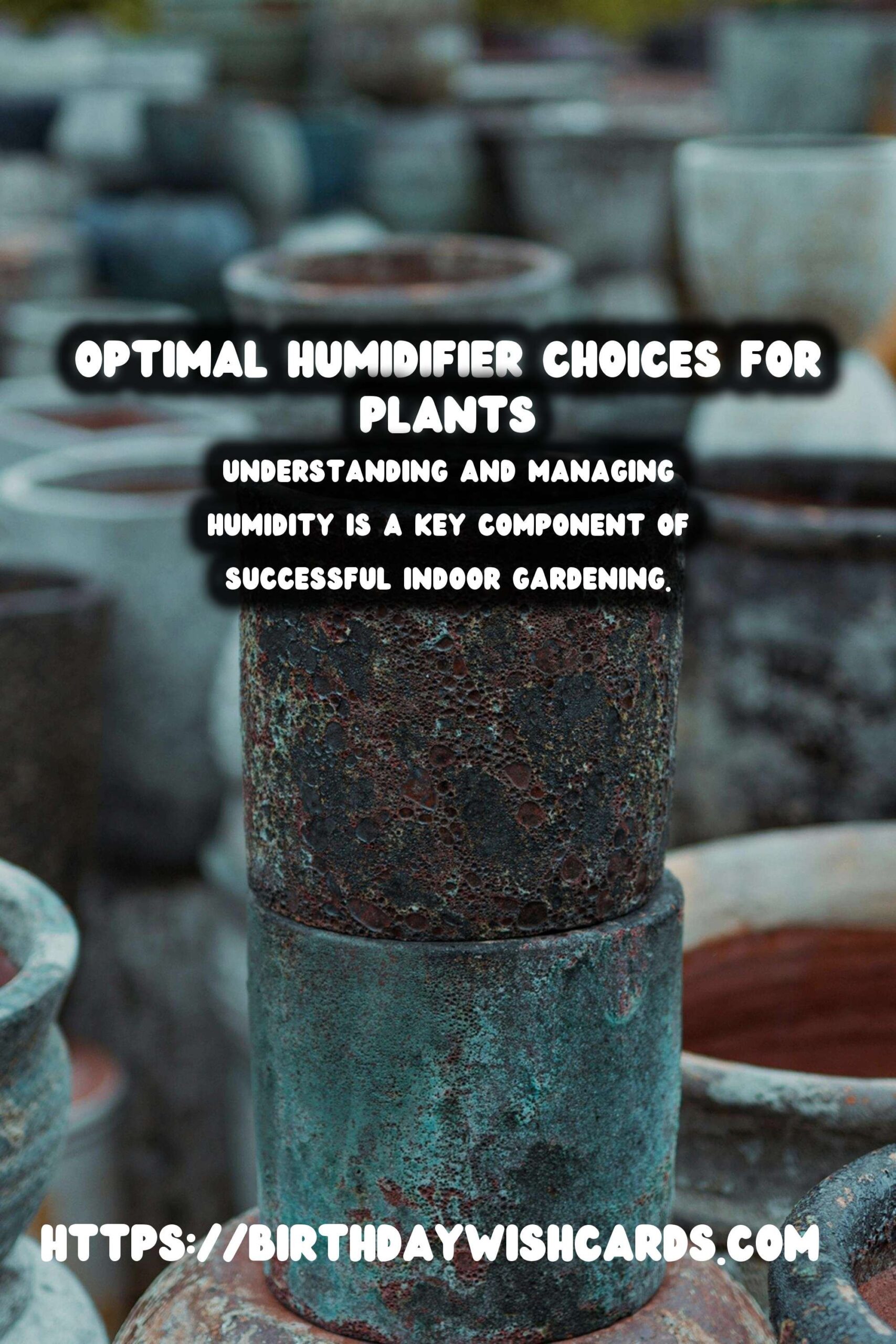
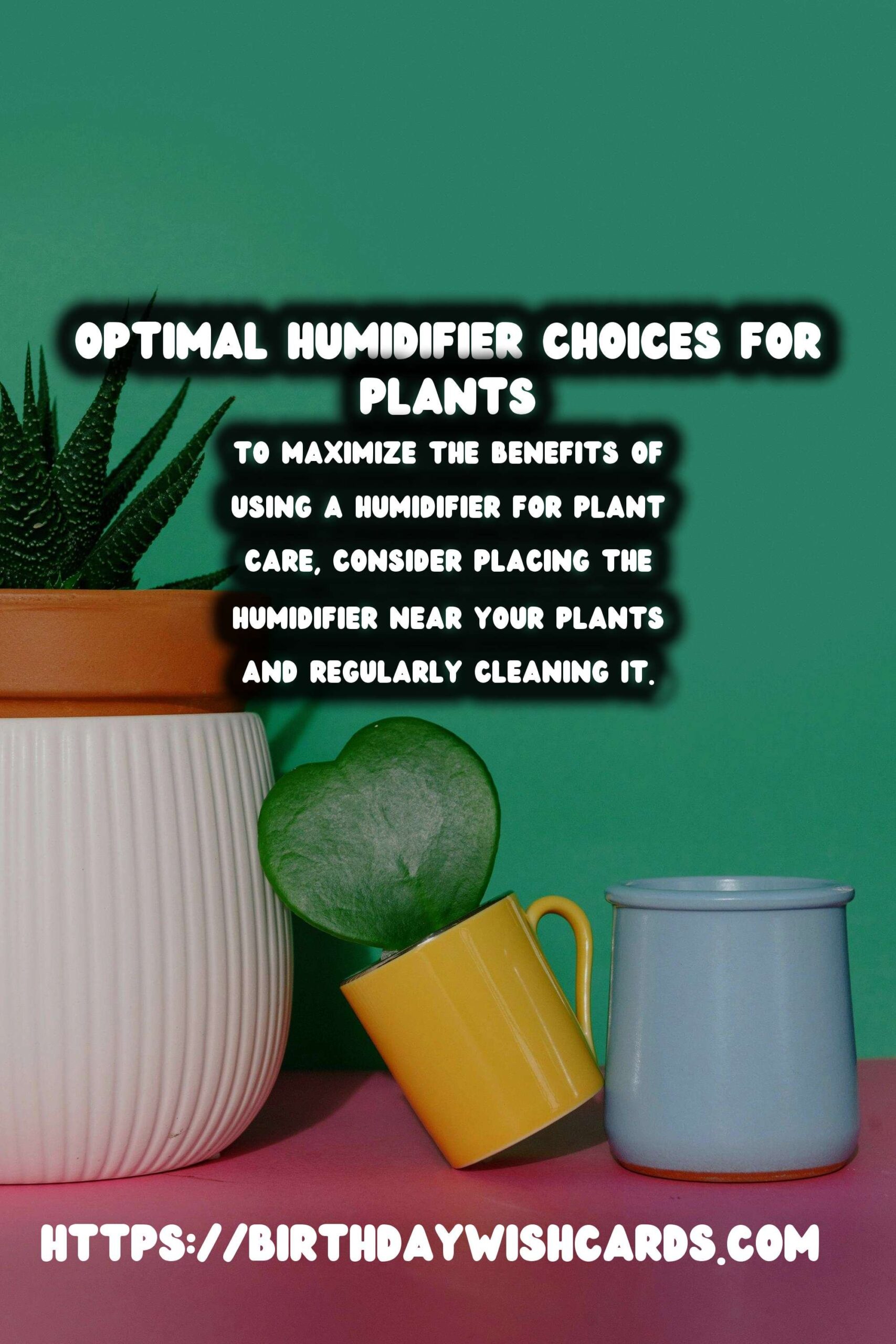
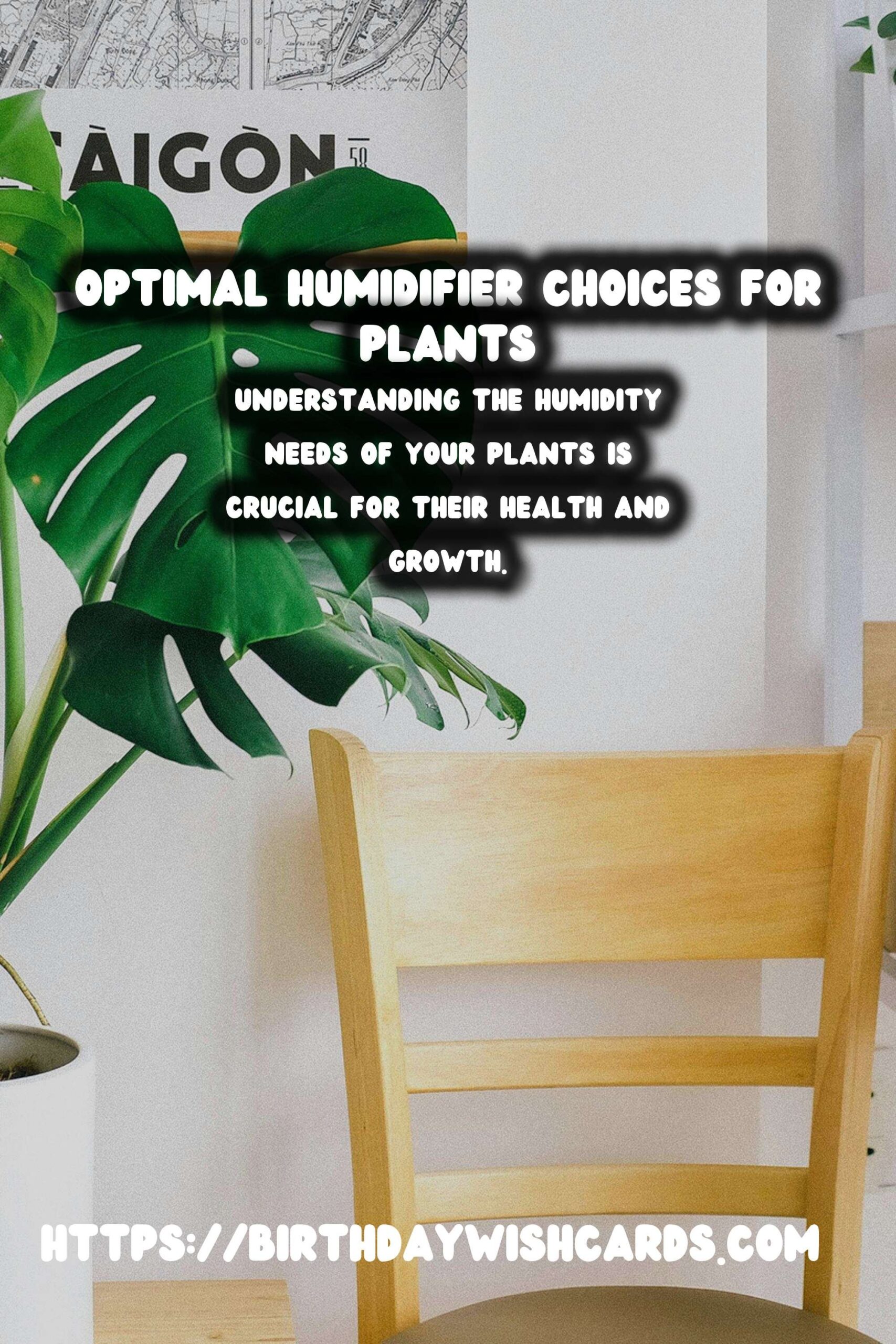
#PlantCare #IndoorGardening #HumidityControl #Humidifiers #Houseplants



